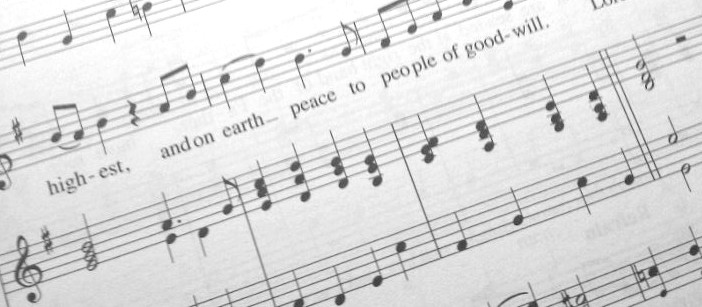No, not THE Ordinary! With the return to green Sundays we’ve taken the opportunity to change the Mass setting which we have been using with the New Translation.

Fr Peter Jones
Except for Lent and a few Masses at Christmas and Easter, we have got to know the Parish Mass by Fr Peter Jones, published in the supplement to Laudate. This has a number of memorable motifs and the children (and many of the adults!) have been making their voices heard as it has become more familiar. The diocesan parish have now started to use it for their Masses.
This repeated use of the same setting of the Ordinary of the Mass — the unchanging parts of Kyrie, Gloria, Sanctus etc — is something which appears to be less favoured in other Catholic circles. But by making the Ordinary ordinary, by not changing the setting from week to week, the Propers gain higher place. Thus the readings and the psalm, and the sentences or the hymns which replace them, come to the fore and ultimately the richness of the Calendar can shine in the liturgy.
Varying the setting of the Ordinary of the Mass can help mark the passage through the Church’s year, though, so for Lent (along with the diocesan parish) we used the Missa Simplex with its accompaniment by Jeremy de Satgé and published by The Music Makers. It was something of a relief to return to Jones’ exuberant C-major Gloria after Easter!
For this part of Ordinary Time, immediately after Trinity, we are using another new setting published in the Laudate supplement, the Pershore Mass by Alan Smith, another of the music men of the Archdiocese of Birmingham and organist at Holy Redeemer Catholic Church in Pershore. His Mass is predominantly in E minor, but again has earworm motifs repeated throughout the setting and hopefully it will become as well-known as Peter Jones’ music.
In choosing the music which changes each week (calling hymns “Propers” is probably overstating things) we are able to refer to publications like the RSCM’s Sunday by Sunday and other liturgy planners which can provide suggestions. Having to rely on Laudate is providing both a challenge and an opportunity! We find some choices which seem obvious are not present in the book, but can also use less familiar words and music which we haven’t all met before. The general plan is to use a processional entrance hymn which restates the antiphon given in the Missal; an offertory hymn which provides a more substantial commentary on the readings and the message of the day; and a final hymn which sums up the worship and sends the congregation out in the spirit of the dismissal.
There is scope during Mass for an anthem — we usually insert this during the administration of communion — and again we try to find items which bear on the message of the readings. With a small number of singers the repertoire is a little limited, and more voices are always welcome — especially if you can sing an independent tenor or bass line. Please use the Contact form to make contact and get more details or come along on a Sunday afternoon and see what goes on.









 Posts
Posts